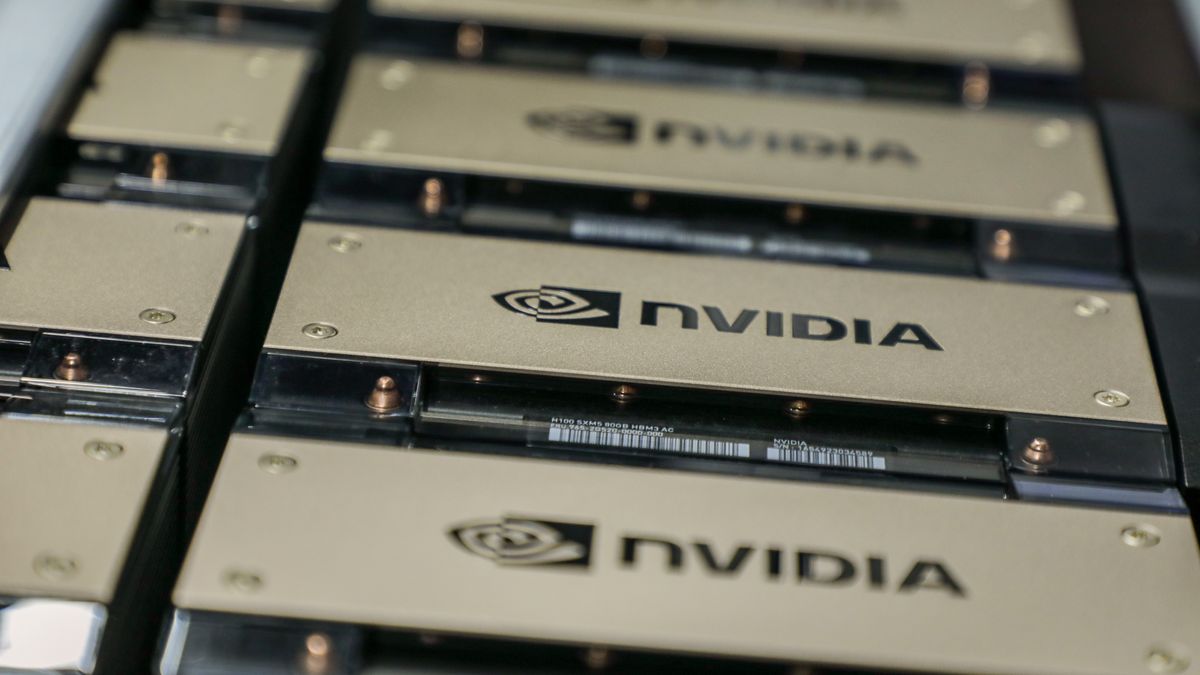The launch of AI has obviously been a lucky development for Nvidia, as well as other companies involved in the AI industry. But there is no uniform path for companies even in such promising markets, and we are seeing evidence of this now as the share prices of Nvidia and other AI companies begin to fall.
As the BBC points out, share prices have fallen for many tech companies in America and Asia. This includes Nvidia, which saw its shares drop 6.8%. Other companies facing losses include Google’s parent company Alphabet, Apple, Microsoft, and Tesla.
As much as we PC gamers may sometimes refuse to admit it, Nvidia is an AI company, for now, not a PC gaming company. And while it has been a titan vendor for the datacenter industry before AI, the company has advanced in every metric since the AI boom, as it is now the number one vendor of shifts for jobs that many AI. Heck, Nvidia was the most valuable company in the world last month.
And we really need to remember this when we hear talk of falling share prices. Nvidia is still the AI titan it was last month, as other AI companies are seeing a decline. To take another example, the BBC tells us that chip maker SK Hynix is one of the Asian companies to see its shares fall, but we also see (via Reuters) that it recently became profitable the highest quarterly since Q3 2018. This is thanks, in part Reuters, to the search for high bandwidth memory (HBM), which happens to be sold to Nvidia.
So, what gives? No, share prices do not indicate the health of the company, although they may indicate the perceived value or future value of the company. If share prices are falling, this means that the company’s shares have started to sell at lower and lower prices, in what may seem like a race to the bottom, wherever the new bottom is. (new share price) potential. When this happens, it can indicate that the market thinks the company is more valuable than it will end up going.
But all of this is strangely related. Nvidia is growing and climbing at an amazing rate, and it has reached such a high that a short-term drop would mean little. It may be as simple as investors selling as things go, which would not necessarily mean that things will get worse in the future, just because some investors won’t. guarantee that things will be better than they are now.
Of course, companies should not be considered a vacuum, either. This decline appears to be affecting the AI industry across the board, suggesting broader market concerns. According to the BBC, Jun Bei Liu, Portfolio Manager at Tribeca Investment Partners, says that “investors are now very concerned about all these costs with AI without the benefit of revenue” which “means that investors will focus on more than just buying the entire department.”
To me, this all screams of a big and very chaotic market in the end and in nature. But I don’t know much about these things, and others more knowledgeable than I have pointed out the ridiculously large amount of money needed to keep the AI bubble going, given the amount borrowed to install money in it. Market investors willing to do this can mean that investors focus more on returns, and some of them sell immediately, causing prices to fall.
In any case, as some Western governments come together to block the AI monopoly is a reminder, this change in the share price is also a valid reminder that AI is not just a technology or a tool, it is an industry which has a market just like the others. And the markets are declining.
#Nvidias #share #price #falling #firms #good #valuable #companies #world

